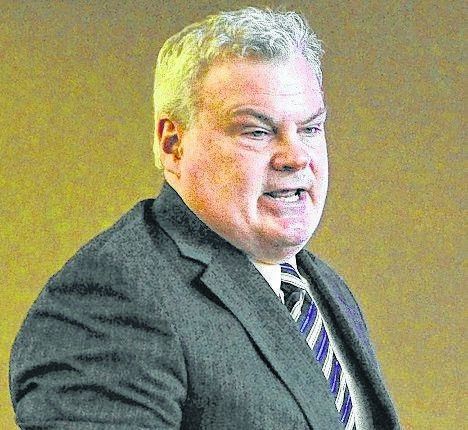Click here to subscribe today or Login.
WILKES-BARRE — The Federal Energy Regulatory Commission on Friday voted 3-2 to deny rehearing on the PennEast Pipeline, allowing work to move forward.
The vote came on the last day at work for Republican Commissioner Robert Powelson, who retired early to head a water company trade group. The resulting 2-2 partisan split on the commission allows Democrats to deadlock votes until a replacement is confirmed.
Regulators late Friday declined to revisit decisions approving three pipeline projects — including the $1.2.billion 116-mile PennEast pipeline in Pennsylvania — beginning in Dallas Township — and New Jersey.
Patricia Kornick, spokesperson for PennEast, said PennEast has been confident in the need for the PennEast Pipeline Project, the quality of the application PennEast submitted and FERC’s thorough review of the issues raised since PennEast announced the project four years ago.
“To the benefit of area electric and natural gas consumers, PennEast looks forward to bringing the project to fruition,” Kornick said.
Kornick added that PennEast is continuing to work with landowners to obtain property access, which will enable PennEast to complete the necessary environmental surveys along the route.
“PennEast anticipates beginning construction in 2019,” Kornick said. “Following an approximately seven-month construction phase, the PennEast Pipeline will be operational.”
FERC Commissioner Richard Glick voted against the action and issued a statement, saying he felt the PennEast project was not needed.
“I disagree with the Commission’s conclusion that the Final Environmental Impact Statement (Final EIS) adequately assessed the environmental harms caused by the project,” Glick said in his dissenting opinion. “The Commission, in this proceeding, determined that the project will be environmentally acceptable even though the record lacks information that is critical to assessing the project’s environmental impact. The absence of this information should have prevented the Commission from concluding that the Project was in the public interest.”
Glick went on to say that “the Commission must find both that the pipeline is needed, and that, on balance, the pipeline’s benefits outweigh its harms.”
Scott Cannon of Action Together NEPA, an environmental advisory group that opposes the pipeline project, said recent studies show that the methane leakage from fracking, pipelines, and processing is much higher than previously thought, making natural gas as dirty as coal for the environment.
“Methane is approximately 83 times more potent than CO2 as a greenhouse gas that causes climate change,” Cannon said. “Add to the fact that while we are promoting natural gas as the predominant fuel supply in Pennsylvania, we are taking away efforts to move towards renewable energy sources, making it dirtier than coal, thus moving backwards in our efforts to fight climate change.”
The PennEast Pipeline will originate in Dallas in northeastern Pennsylvania, and terminate at Transco’s pipeline interconnection near Pennington, Mercer County, New Jersey (approximately one-third of the route is located in New Jersey).






